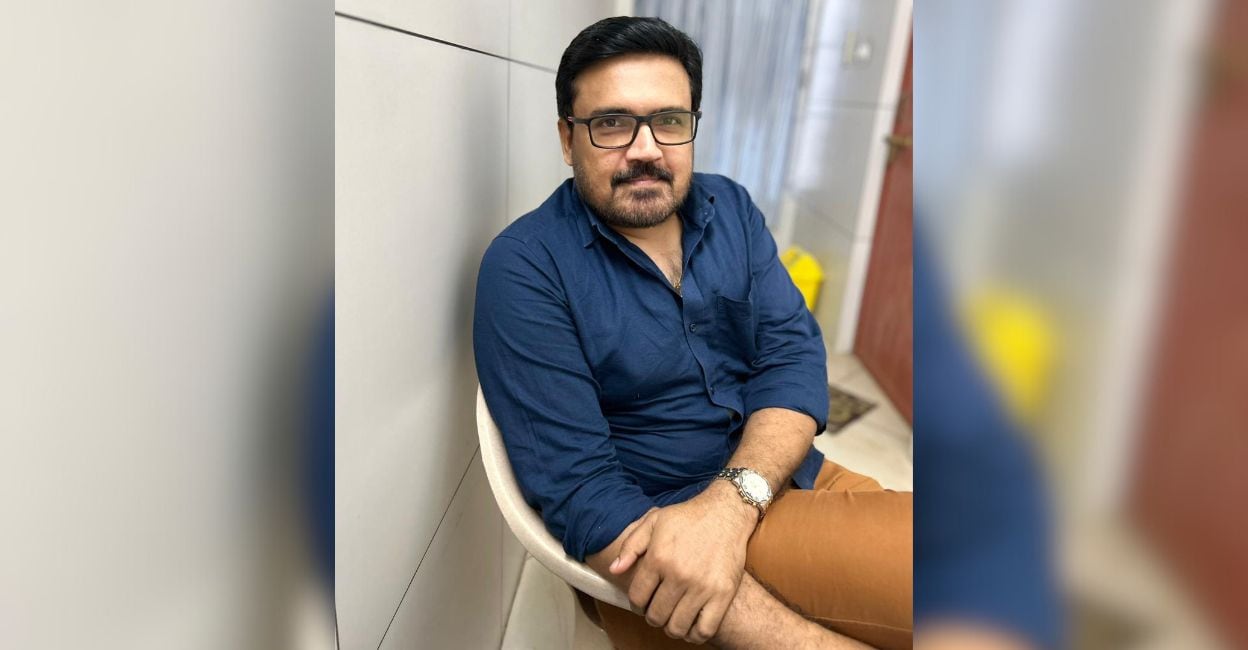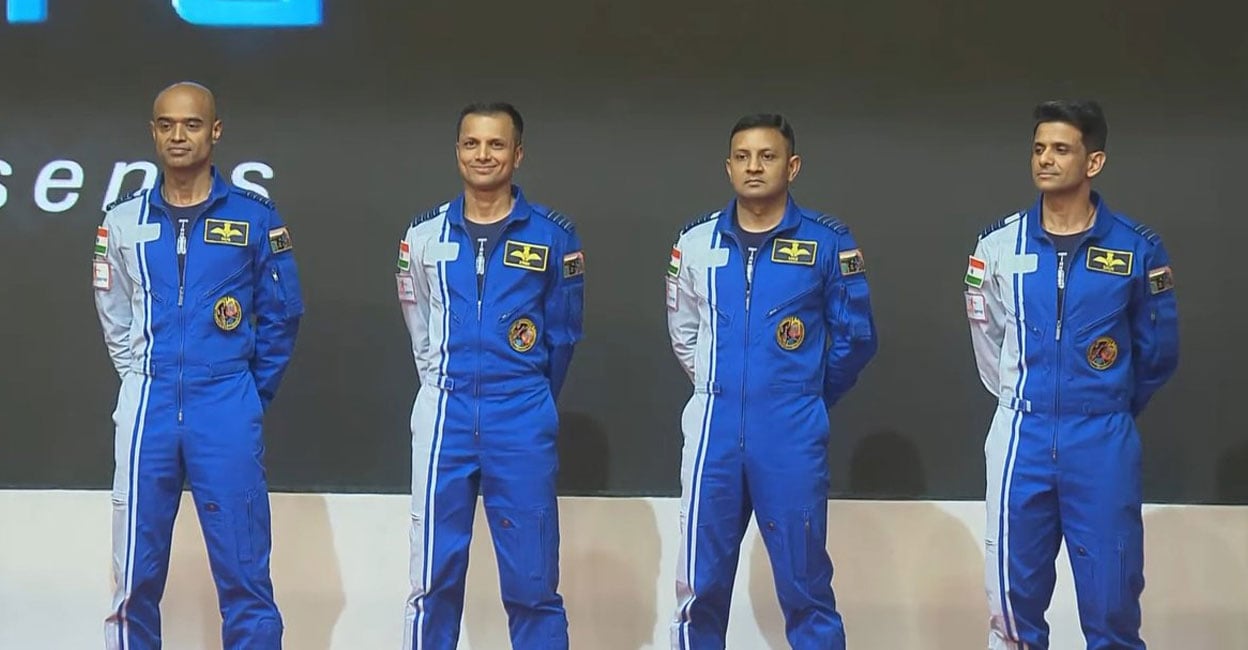'It's a proud moment for us', beams old classmate of Gaganyaan astronaut-designate Prashanth Nair

Mail This Article
Palakkad: When Prime Minister Narendra Modi announced the name of Group Captain Prashanth Balakrishnan Nair along with three other test pilots who have been training for Gaganyaan; India’s maiden human space flight mission on Tuesday, it was a proud moment for Dr Venugopal G, too.
Dr Venugopal, currently working as a professor in the Department of Instrumentation and control engineering at NSS College of Engineering, Akathethara in Palakkad district was one of the classmates of Nair when he joined the engineering course back in 1994.
"Prashanth and I joined the B Tech in Instrumentation and Control Engineering at the NSS Engineering College in the same year, 1994. Though he left the college seven to eight months after clearing the NDA entrance examination, I still remember him as a very friendly and jovial person. My native place is Alappuzha, so I stayed at the college hostel during the course. Prashanth hailed from Nemmara and he used to stay at his uncle’s house which was close to our college. We used to have food together those days," said Dr Venugopal.
Venugopal kept bonding with Nair often through social media platforms. “We used to interact frequently through Facebook. It is definitely a proud moment for the country and our college, too. I wish him success in the mission," Venugopal said.

For the first crewed mission of the Gaganyaan programme, astronaut trainees are selected from a pool of test pilots, based on selection criteria jointly defined by ISRO and the Indian Air Force which comprises flying experience, fitness, psychological and aeromedical evaluation (including anthropometric parameters). The Gaganyaan Programme envisages undertaking the demonstration of human spaceflight to Low Earth Orbit (LEO) in the short term and will lay the foundation for a sustained Indian human space exploration programme in the long run.
The objective of the Gaganyaan programme is to demonstrate the indigenous capability to undertake human space flight missions to LEO. As part of this programme, two unmanned missions and one manned mission are approved by the Government of India (GoI), according to the Indian Space Research Organisation.


